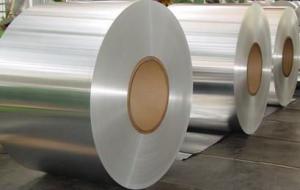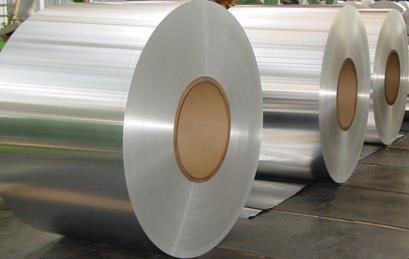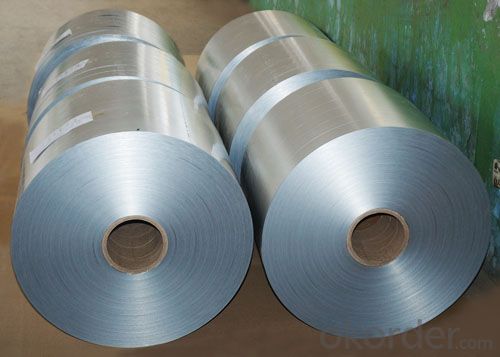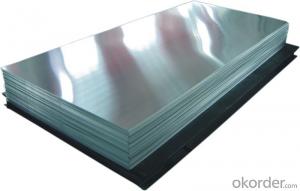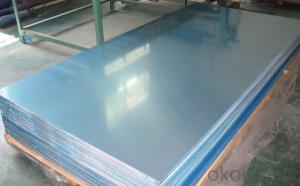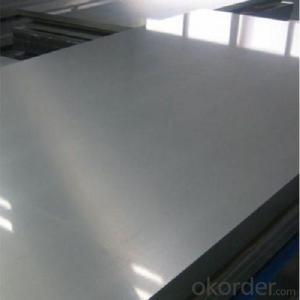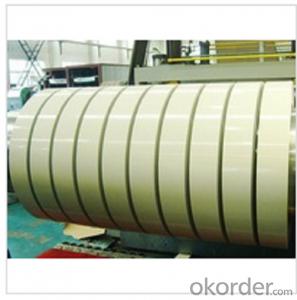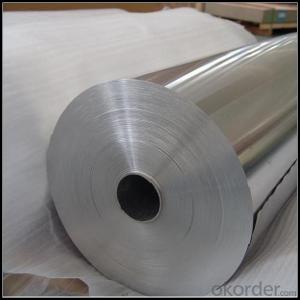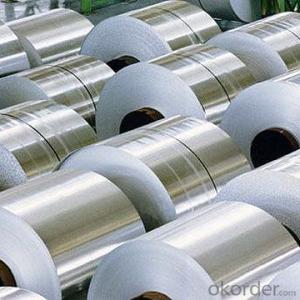Acl Aluminum Coils 5083 Aluminum Sheet Price, Price of Aluminum Sheet/Coil
- Loading Port:
- Shanghai
- Payment Terms:
- TT OR LC
- Min Order Qty:
- 5 m.t.
- Supply Capability:
- 5000 m.t./month
OKorder Service Pledge
OKorder Financial Service
You Might Also Like
Specification
5083 Aluminum Sheet Price, Price Of Aluminum Sheet/Coil
Packaging & Delivery
| Packaging Details: | Standard seaworthy packages in bundles or as per requirement. Container size: The inner size of container is below: 20ft GP: 5.8m(length) x 2.13m(width) x 2.18m(high) about 24-26CBM 4 0ft GP: 11.8m(length) x 2.13m(width) x 2.18m(high) about 54CBM 40ft HG: 11.8m(length) x 2.13m(width) x 2.72m(high) about 68CBM(stainless steel seamless pipe) |
| Delivery Detail: | Within 5-15 days after deposit(price of aluminum coil) |
Our Services
1. Provide products with high quality and reasonable price
2. The first time back to you
3. Perfect after-sale service
4. Small order is acceptable
5. OEM is acceptable
6. 12Months quality guarantee
7. Any third party testing is acceptable
Product Description
| Product Name | Prices of aluminum coil |
| Standard | JIS, AISI, ASTM, GB, DIN |
| Alloy | Yes |
| Width | 720-1250mm or as the customers' requirements |
| Length | 10000-12000mm mm or as the customers' requirements |
| Thickness | 0.12-1.5mm |
| Surface | Black painted,PE coated,GL,color coated,etc |
| Item | steel plate,steel sheet,alloy plate,alloy sheet |
| Application | construction field, ships building industry, petroleum & chemical industries, war and electricity industries, food processing and medical industry, boiler heat exchanger, machinery and hardware fields ,etc. |
| Packing | Export standard or as customers' requirement |
| Delivery time | Within 7 working days, according to customers' quantities |
| Payment | L/C or T/T or as customers' requirement |
| MOQ | 1 Ton |
| Quality | High Quality. We can Provide SGS inspection if you need . |
| Productivity | 60000 Tons/Month |
| Attention | We will supply you good quality and bottom price and first-class service in china and hope to be your golden supplier |
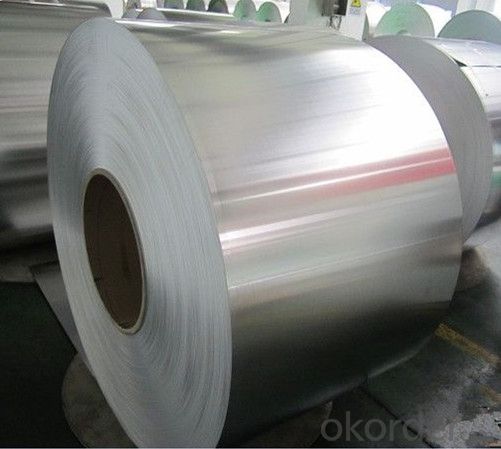
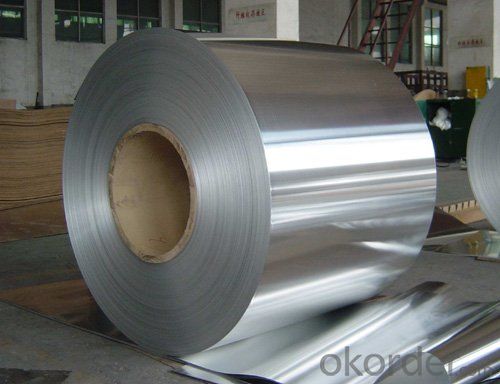
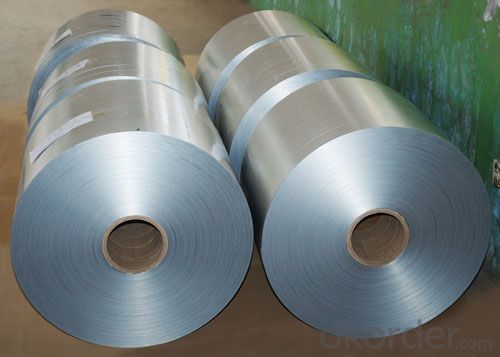
- Q: Can aluminum coils be used in high-radiation environments?
- Yes, aluminum coils can be used in high-radiation environments. Aluminum has good radiation resistance and can withstand high levels of radiation without significant degradation or damage. It is commonly used in applications such as nuclear power plants and aerospace industries, where radiation exposure is a concern.
- Q: I am so confused right know. I want to cook something using an aluminium foil. Is the reflective side supposed to be inside or outside?
- Doesn't matter. Try cooking something with shiny side and another something with dull side. Both products will be cooked the same. Good Luck.
- Q: Are there any limitations on the anodizing of aluminum coils?
- Yes, there are certain limitations on the anodizing of aluminum coils. Some of the limitations include the size and thickness of the coils, as well as the surface finish and quality of the aluminum. Additionally, the composition and alloy of the aluminum can also affect the anodizing process. It is important to consider these limitations to ensure successful and satisfactory anodizing results.
- Q: Explain how aluminum coil interacts with magnetic fields and what effects can be observed.
- <p>Aluminum coil itself does not have a direct relationship with magnetic fields in terms of magnetic properties, as aluminum is not a magnetic material and does not get magnetized. However, when an aluminum coil is part of an electrical circuit, it can interact with magnetic fields in the context of electromagnetic induction. If a changing magnetic field passes through an aluminum coil, it can induce an electromotive force (EMF) or voltage in the coil, according to Faraday's law of electromagnetic induction. This induced voltage can cause an electric current to flow through the coil if it is part of a closed circuit. The aluminum coil's primary interaction with magnetic fields is thus through the generation of electrical current when used in conjunction with an electric circuit.</p>
- Q: What are the advantages of using aluminum coils in various industries?
- There are several advantages of using aluminum coils in various industries. Firstly, aluminum is a lightweight material, which makes it easier to handle and transport. This also reduces the overall weight of products, leading to improved fuel efficiency. Secondly, aluminum coils have excellent corrosion resistance, making them ideal for applications in industries such as construction and automotive. Additionally, aluminum is a highly conductive material, enabling efficient heat transfer, which is beneficial in industries like HVAC and refrigeration. Lastly, aluminum is recyclable, contributing to sustainability efforts and reducing environmental impact. Overall, the use of aluminum coils offers numerous benefits in terms of weight, corrosion resistance, conductivity, and sustainability.
- Q: Can aluminum coils be used in power generation facilities?
- Yes, aluminum coils can be used in power generation facilities. Aluminum has excellent thermal conductivity, making it an efficient choice for heat transfer applications in power generation equipment such as heat exchangers and condensers. Additionally, aluminum's lightweight nature and corrosion resistance make it a viable option for various power generation processes, including wind turbines and hydroelectric power plants.
- Q: What is the typical coil diameter for aluminum coils?
- The diameter of aluminum coils can differ based on the particular application and industry needs. Generally, aluminum coils possess a diameter spanning from 12 to 72 inches. The precise diameter is determined by several factors including the thickness of the aluminum sheet, desired coil weight, and the processing and handling equipment employed. Various industries like automotive, construction, and packaging might have specific coil diameter requirements tailored to their distinctive manufacturing processes and end-use demands.
- Q: Can aluminum coils be used in automotive heat shields?
- Indeed, automotive heat shields can utilize aluminum coils. Thanks to its exceptional resistance to heat and lightweight characteristics, aluminum is extensively employed in heat shield production. By shaping and forming aluminum coils according to the desired design, automotive applications can benefit from straightforward installation and customization. Moreover, the high thermal conductivity of aluminum aids in efficiently dissipating heat, rendering it an optimal option for vehicle heat shields.
- Q: What are the common safety precautions when working with aluminum coils?
- When working with aluminum coils, it is important to follow several safety precautions to ensure the well-being of individuals and prevent accidents. Some common safety precautions when working with aluminum coils include: 1. Personal Protective Equipment (PPE): Always wear appropriate PPE such as safety goggles, gloves, and aprons when handling aluminum coils. This protective gear helps protect against potential injury from sharp edges, cuts, or burns. 2. Proper Handling Techniques: Use proper lifting techniques to avoid strain or injury. Aluminum coils can be heavy, so it is essential to lift with your legs, not your back, and use lifting aids or equipment if necessary. 3. Secure Storage: Store aluminum coils securely to prevent them from falling or rolling. Avoid stacking coils too high to prevent them from toppling over and causing injuries. 4. Proper Ventilation: Ensure that the work area has adequate ventilation to prevent the buildup of fumes or dust particles. Aluminum coils may release harmful particles or gases when cut or processed, so proper ventilation is crucial for maintaining a safe working environment. 5. Fire Safety: Aluminum is highly flammable, so it is vital to prevent sparks or open flames near aluminum coils. Use non-sparking tools and avoid smoking or using flammable materials in the vicinity. 6. Sharp Edges: Be cautious of sharp edges on aluminum coils, as they can cause cuts or lacerations. Handle coils with care and use appropriate tools to mitigate the risk of injury. 7. Training and Safety Guidelines: Ensure that all personnel working with aluminum coils are properly trained in handling procedures and safety guidelines. This includes understanding the correct use of equipment, emergency procedures, and knowledge of any specific hazards associated with aluminum coil handling. 8. Regular Maintenance: Maintain equipment and tools regularly to ensure they are in good working condition. This includes inspecting and repairing any damaged or worn-out parts that could pose a safety risk. 9. First Aid and Emergency Response: Keep a well-equipped first aid kit nearby and ensure that employees are aware of its location. In addition, establish clear emergency response protocols and train employees on what to do in case of an accident or injury. By adhering to these common safety precautions, individuals can minimize the risks associated with working with aluminum coils and create a safer working environment.
- Q: How are aluminum coils used in heat exchangers?
- Aluminum coils are widely used in heat exchangers due to their excellent thermal conductivity and corrosion resistance properties. Heat exchangers are devices that transfer thermal energy between two or more fluids, and aluminum coils play a crucial role in facilitating this heat transfer process. In a typical heat exchanger, aluminum coils are used as the primary component for the heat transfer surface. These coils are usually made of thin aluminum sheets that are formed into a tube-like shape, creating a large surface area for efficient heat transfer. The coils are often arranged in a serpentine pattern to maximize the contact area between the fluid being heated or cooled and the coil surface. The fluid that needs to be heated or cooled passes through the coil, while another fluid, usually water or air, flows over the coil surface. As the fluids come into contact with the aluminum coil, heat is transferred from one fluid to the other through conduction. The high thermal conductivity of aluminum allows for quick and efficient heat transfer, resulting in effective temperature control. Moreover, aluminum coils are highly resistant to corrosion, which is crucial for heat exchangers that come into contact with various fluids, some of which may be corrosive. This corrosion resistance ensures the longevity and durability of the heat exchanger, reducing maintenance and replacement costs. Additionally, aluminum coils are lightweight and easily formable, making them suitable for different heat exchanger designs and configurations. This flexibility allows manufacturers to create compact and space-efficient heat exchangers that can be installed in various applications, such as HVAC systems, refrigeration units, automotive radiators, and industrial processes. In conclusion, aluminum coils are used in heat exchangers due to their excellent thermal conductivity, corrosion resistance, lightweight nature, and formability. These coils effectively transfer heat between fluids, ensuring efficient temperature control and enabling the proper functioning of various heating and cooling systems.
Send your message to us
Acl Aluminum Coils 5083 Aluminum Sheet Price, Price of Aluminum Sheet/Coil
- Loading Port:
- Shanghai
- Payment Terms:
- TT OR LC
- Min Order Qty:
- 5 m.t.
- Supply Capability:
- 5000 m.t./month
OKorder Service Pledge
OKorder Financial Service
Similar products
Hot products
Hot Searches
Related keywords
